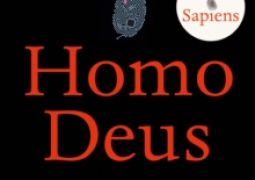Two decades ago Francis Fukuyama gained widespread attention, and some notoriety, with the argument that the modern world had reached the end of history. Of course, he did not mean that history as a flow of events would cease. What he did mean was that history as successive stages of society had reached its final level. There is no future regime beyond modern democracy and capitalism. This is because liberal democracy is basically in alignment with human nature: it satisfies our natural desires for wealth and for recognition. Two decades on, and with no post-liberal, post-capitalist stage of history visible on the horizon, it appears that his basic diagnosis remains sound.
But the end-of-history thesis had also predicted that the rest of the world would follow the West and eventually arrive at the last stage. This part of the argument remains undecided. The continuing prevalence of autocracy, illiberal states, and ineffective governance in many parts of the world casts severe doubt upon it. The anticipated universal convergence currently seems unlikely.
Now The Origins of Political Order revisits these two issues, among others, to provide an overview of political evolution. The book begins with the evolution of human nature, briefly covers social evolution from foraging to agriculture to the earliest states, and then compares political evolution, its parallels and divergences, in India, Islam, and particularly China and the West up to the eve of modernity.
A key theme of Origins is that a modern political order is not a unitary package: it consists of a bundle of three separate institutions with distinct histories. One is a modern state, with competent and honest officials, not prone to nepotism, corruption, and clientelism. Second is the rule of law, or binding constraints upon the rulers as well as the ruled. Third is accountability, usually via elections but also via a sense of responsibility towards the people, a sense of ruling for the common good. The bulk of The Origins of Political Order consists of successive sections looking in turn at the origins of the modern state, of the rule of law, and of accountability. The book is a thematic rather than a chronological history.
The decision to focus upon these three institutions means that Origins is not a general history of politics or the state. Much is left out. We hear little of other aspects of rule such as conquests and empires, city-states or feudalism. Since Fukuyama is concerned with the origins of our current arrangements, he leaves out polities that proved to be transient. There is nothing on the polities of pre-Columbian America, a scant pair of pages on Africa, and nothing on the Greco-Roman West. Most of the book is about four regions that loom large in contemporary world politics: China, India, Islam, and the West. Among those, China and Europe receive most attention, since they were the scenes of the major innovations in political development: a rational bureaucracy in the former, and the most solid rule of law and accountability in the latter.
The Origins begins at the beginning with human evolution. This is no mere prolegomena. Fukuyama deserves credit for emphasizing that we are political animals and that evolved human nature is a basic influence on politics. Gathering evidence from a variety of sources – studies of chimpanzees as well as reports from the political life of hunting and gathering bands – Fukuyama proposes that humans have four key natural dispositions most relevant to politics. We evolved to be nepotistic, most inclined to cooperate with kin. We evolved to be religious; we evolved to be norm-followers; and we evolved to seek status or recognition.
A particularly illuminating element of the book is how these evolved dispositions have continued to be influential. Nepotism, or kin selection, as expressed in strong tribal or clan lineages, is a continuing theme in the book as the nemesis of the modern state. If tribalism is strong, as today in Afghanistan or the Sunni Triangle of Iraq, modern states cannot flourish. The importance of religion as an influence on political development is another theme throughout. It was from religion, Fukuyama argues, that the rule of law arose. The key role of norms and institutions provides the subject-matter of the book: political institutions. Fukuyama regards the desire for status or recognition as the main source of change in history, and he engages in a running dispute through the book with rationalist or rational-choice explanations. Though Fukuyama uses a bio-historical and bio-political approach, he is by no means a ‘biological determinist’. Biology he treats as probability not determination.
After briefly describing the transition from foraging to agriculture and then the development from bands to tribes to chiefdoms to states, Fukuyama turns to his main concerns: (i) the origins of the modern state – in ancient China; (ii) the origins of the rule of law in the realms of powerful religions: India, Islam, and Christendom, but not China; and (iii) the origins of accountability in the assemblies of medieval Europe, especially the English parliament.
Considering the origins of the modern state, Fukuyama’s key contention is that this did not arise only in 19th–century Europe but earlier, in China, in the 3rd century BC. For Fukuyama, the Chinese bureaucracy was rational and Weberian and hence ‘modern.’ If he is correct, we have to conclude that there were two different roads to political modernization: one in China, the other in the West. In other words, this was a case of parallel evolution.
Fukuyama makes the useful point that state-building requires overcoming the strong bonds of kin. States were recurrently prone to being colonized by their officials’ nepotism (favouring their relations), dynasticism (seeking to have their offspring inherit their office), tribalism, and clannishness. One method of by-passing kinship was to recruit military slaves. This was a common ploy in Islam and resulted in such bodies as the Ottoman Janissaries. Another was to rely on eunuchs, who were biologically prevented from founding their own mini-dynasties within the apparatus of the state. A third was to recruit officials on the basis of competence or merit. This, Fukuyama argues, was China’s main innovation. Europe was unusual: before state-building got underway, the Church had already weakened extended lineages (except in peripheral areas, such as Highland Scotland with its clans) with its ban on cousin-marriage. The bonds of extended lineages had already diminished prior to European state-building.
According to Fukuyama, China’s pioneering ‘modern’ rational bureaucracy arose due to a combination of the necessities of war and the megalomaniac ambition of Qin Shi Huangdi (259–210 BC), the First Emperor, who is the most vivid and memorable character in Origins. Still, it might be objected that this explanation is incomplete because warfare and megalomania have been much more common across history than rationalized bureaucracies. A crucial precondition is missing: a rational bureaucracy is only likely to arise and endure in a population that was pre-adapted for rationalism, for cognitive ability, and for holding education and examinations in high status.
How ‘modern’ was China’s bureaucracy? One objection to Fukuyama’s modernity-of-mandarins thesis is that though Chinese officials were recruited on educational merit, the content of their education was highly traditionalistic. Civil service examinations were exhaustive and gruelling tests of candidates’ ability to memorize prodigious quantities of classical texts. Competence was not measured in mastery of practical, scientific, or technical knowledge. The latter kind of competence is closer to what a ‘modern’ bureaucrat is supposed to master. If so, this calls into question Fukuyama’s point that there were two different roads to political modernity: the Chinese and the Western. It implies that China’s bureaucracy was less than fully modern. Fukuyama’s Sinocentric account of the modern state is interesting but not entirely convincing.
Turning to the origins of the rule of law, a second divergence comes into view. In China, no rule of law developed; but in the lands of Hinduism, Islam, and Christianity it did. The reason is that where the authority of religious organizations was high, rulers were constrained to accept the rule of law. But in China, where a strong state had solidified early, and where the rulers took pains to prevent a challenge to their supremacy from organized religion, no rule of law developed. In Europe during the Middle Ages, the balance tilted furthest in favour of the Church and against the state. There, the rule of law was strongest.
One criticism of Fukuyama’s treatment of this issue is that he gives relatively little attention to the content of the ruling laws, as opposed to the presence or absence of legal constraints on rulers. In the West, law had two unusual features that had a great impact on political order. One was that the law recognized corporate entities, bodies independent of either rulers or kin groups. This was the legal basis for self-governing city corporations or universities. Another key feature of Western law from ancient Greece onwards was the prohibition on polygyny. This was unique to the West. All other major regions of the world allowed polygyny. This had one clear political effect: European rulers had no harems, unlike rulers elsewhere. As a result, there was a correlation between polygyny and despotism and between monogamy and greater political liberty. Since Fukuyama highlights the West’s divergence in kinship matters, it is odd that he does not mention its divergent marriage system.
The next great divergence concerns accountability: as Fukuyama recognizes, only in Europe, and in particular England, did institutions of political accountability develop. Across medieval Europe, a parliament, a cortes, or a sejm was to be found in most places. But the only one to survive and grow in power was the English parliament. The crucial juncture for modern accountability was the sequence of the English Civil War, the Glorious Revolution, and the English colonists’ Declaration of Independence. Why was England unique? Fukuyama compares four paths taken by early modern European states. One was weak absolutism (France or Spain) involving the sale of offices. A second was strong absolutism (Russia). A third was failed oligarchy (Poland, Hungary). The fourth was accountable government (England, Scandinavia). Among the reasons he offers for the accountable path were the growth of literacy encouraged by Protestantism and the cohesion or solidarity of the English parliament. It is no wonder, then, that Fukuyama thinks the rise of accountability was highly contingent. It was a close-run thing.
Although Fukuyama begins the book by vowing to offer an alternative to an Anglocentric or Eurocentric history of political liberty, and offers instead a Sinocentric account of the modern state, in practice he recognizes that this part of the story is unintelligible without taking account of England’s and Europe’s uniqueness. The old contrast of Western liberty and Eastern despotism retains much of its truth. China may have been precociously modern in its bureaucracy, but that simply meant a more rational despotism. Fukuyama chooses not emphasize it, but his account of the history of political liberty is centred upon the West.
This makes Fukuyama’s exclusion of ancient Greece and Rome from any discussion illogical. Fukuyama’s defence of the exclusion is thus: ‘although Greece and Rome were extremely important as precursors of modern accountable government, China was more important in the development of the state’ (p. 21). This is a notably feeble reason, given that Fukuyama is aiming to explain both the origins of accountability and the modern state. More likely is that the temper of the multicultural times, plus a rising superpower in East Asia, leads him to pay much attention to China and none to the ancient West. The consequence of this decision, though, is to underplay the singular contribution of the West since antiquity to political liberty. We learn nothing in the book of Greek democracy or Roman republicanism.
If the bureaucratic state was a case of parallel evolution (arising independently at least twice in ancient China and modern Europe), if the rule of law was also a case of parallel evolution (arising in three areas), and if accountability was a case of divergent evolution (arising only in Europe), the next volume will have to tackle the issue of convergent evolution: whether or how far distinct societies may converge on a modern political order. The evidence of this volume points to many obstacles to general convergence. Fukuyama emphasizes very long term continuities. China, he argues, has had an efficient, centralized, but authoritarian polity with only a few interruptions since the 3rd century BC, and continues to display high-quality authoritarianism. In India, there is no historical precedent for strong government, due to the countervailing influence of religion. In the West, the rule of law and accountability are long established checks on the power of the state. Instead of parallels or convergences, there have been many long-lasting divergences. In short, Fukuyama’s new book suggests, implicitly but undeniably, that political divergence among different regions and civilizations is deeply rooted and long enduring. In such a situation, the idea of a general convergence, a universal rendezvous in a common regime, appears unlikely. The second part of the end-of-history thesis appears to be in trouble.
The classic history of political order is that there was early on a great divergence between Eastern despotism and Western liberty. Ancient Greeks such as Herodotus noticed it, as did numerous modern European political philosophers. Today, however, this contrast is regarded as suspect, as is any such contrast that is favourable to the West. Fukuyama has improved on the classic contrast, added to it, made it more sophisticated and complicated, but not refuted it. Fukuyama does not deny that there was a broad parting of the ways between Asian despotism and European liberty. But he does downplay it. China appears in Origins not as the most enduring despotism, but with a more positive spin as the pioneer of the ‘modern’ bureaucratic state.
The book ends on the eve of the French Revolution because all three elements of the modern political triad were then in place. The next volume will presumably focus on diffusion rather than innovation, the spread of the modern state, the rule of law, and accountability rather than their origins. Yet, this idea that fundamental innovation was over by 1789 can be questioned. Over the centuries, many successive political transformations have emanated from the West, not just the rule of law and accountability, but also mercantilism, nationalism, the welfare state, and international organizations, to name but a few. The West has been peculiarly innovative in politics, before and after the French Revolution and continuing into the present. Fukuyama’s triadic model of political innovation is not flexible enough to take account of the many-sided political inventiveness of the West.
One conclusion to draw from this book is that there is much continuity in political orders. The turning points that Fukuyama concentrates upon were ancient China in the wake of the Warring States period, medieval Europe, and early modern England. These events, not anything more recent, were the transformations that made the modern political world.
A more practical lesson for policy is that it is hard to create a modern state in a society in which strong extended lineages exist. It is likely that Fukuyama has drawn this lesson not only from history but also from the colossal failures of American policy in Iraq and Afghanistan. Fukuyama was a neoconservative and a supporter of the Iraq invasion of 2003, but subsequently changed his mind and broke with neoconservatism. (In this book, Fukuyama is silent on Iraq, but mentions learning the lesson about clans from a trip to New Guinea.)This book is post-neoconservative in its underlying emphasis on long continuities and hence on the difficulties and obstacles faced by any project of forcefully spreading democracy around the world.
The problem of political development Fukuyama phrases as the question of how to get from Somalia to Denmark. At the beginning of the book, Fukuyama promises that he will be supplying an answer. But by the end of the book we are left wondering if the answer he implicitly supplies is: the best way to get to a Demark is not to start in a Somalia.
The Origins of Political Order is a major achievement: it provides an overview of key strands of political evolution from prehistory onwards; it demonstrates that genes matter, ideas matter, and institutions matter in shaping political orders; and it manages to illuminate both questions of historical interpretation and problems of current policy. The next volume is highly anticipated.
Available at Timbooktoo tel 4494345
Read Other Articles In Book Review




